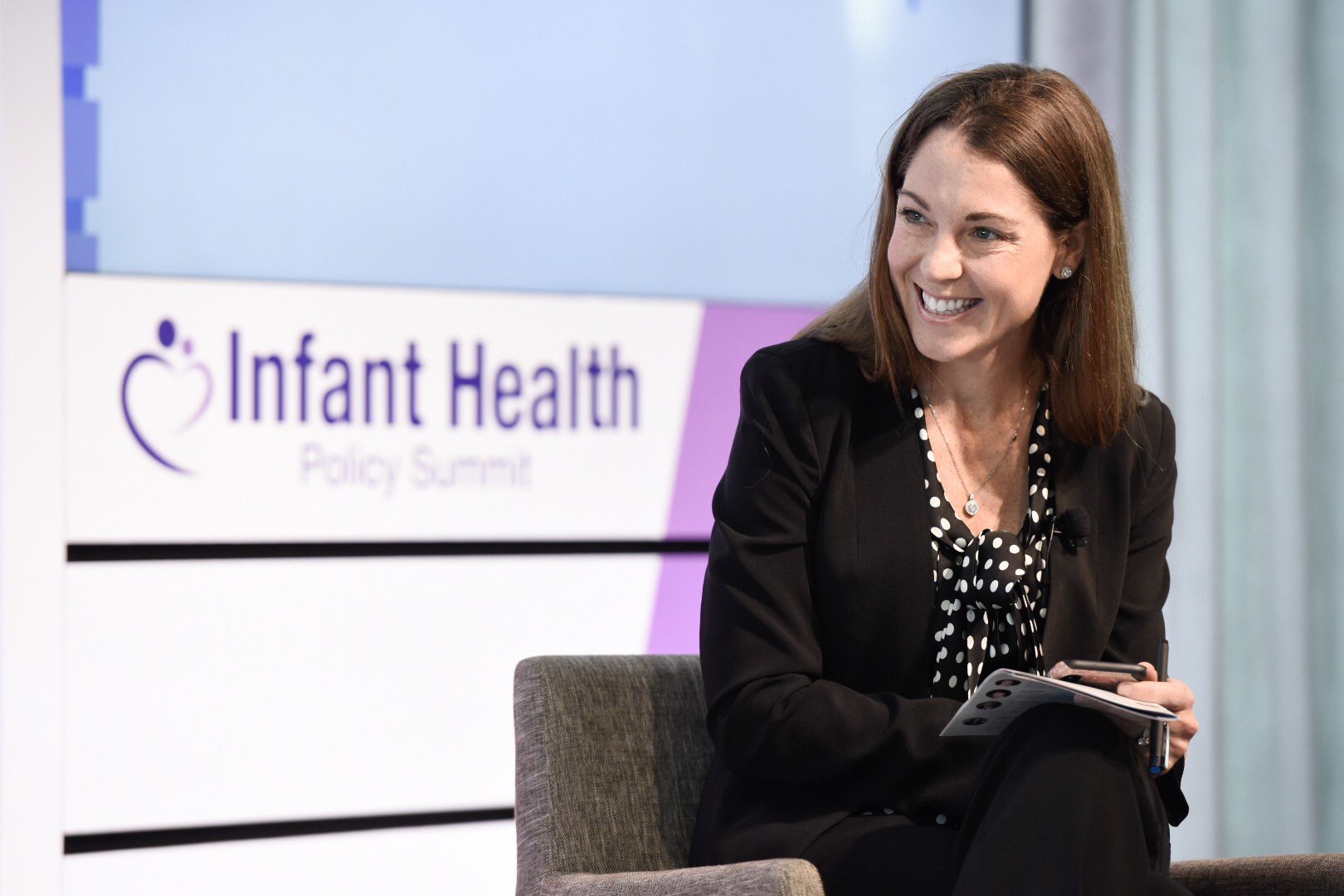To celebrate Nurses Week, we sat down with neonatal nurse practitioner and nurse scientist Ashley Darcy-Mahoney, PhD, NNP, FAAN. Dr. Darcy-Mahoney works clinically in two neonatal intensive care units (NICUs) in Miami, Florida. Simultaneously, she is a tenured associate professor at the George Washington University School of Nursing and Director of Infant Research at the university’s Autism & Neurodevelopmental Disorders Institute. She also works closely with clinician scientists at the MEDNAX Center for Research, Education, Quality and Safety.
Why did you choose nursing?
That’s a question I get all the time, especially from my physician colleagues. When I was an undergraduate at Georgetown, I was interested in health care and pediatrics. Through observations in clinical settings, nurses seemed to be the ones who did a lot of the hands-on patient care, the constant assessments and minute-to-minute changes are what nurses are experts in. It appealed to the sort of work I envisioned doing. I saw nursing as a chance to care of the whole person and the whole family.
What is a nurse scientist?
Nurse researchers are scientists who study various aspects of health, illness and health care.
Typically, people think of physician scientists, but nurse scientists exist and can play an important role in translational science. Nursing research develops knowledge to build the scientific foundation for clinical practice, prevent disease and disability, and manage and eliminate symptoms among other things. My program of research focuses on long-term outcomes of high-risk babies. In our clinical practice, I support NICUs in our quality improvement teams as well as working with multi-site studies
What inspires your clinician and research work?
My neonatal patients and their families definitely inspire me. The reason I have had a successful research program is because of the infants and families that keep me continuing to question the way we care for babies in the ICU. After we transition a baby home from the NICU, a family needs to understand how to best support a growing child who began prematurely, and that process comes with countless questions we need to help them answer. If we can optimize the outcomes for at-risk babies and their families, we can help these children lead happier and more successful lives.
What is a misconception people have about nursing?
I often hear nurses are angels or we are people with wings. I know that speaks to the compassionate care we provide. What that description discounts are the critical skills and education nurses bring to a health care setting. A great nurse is a person who can combine pathophysiology, pharmacology, assessment and critical thinking together with compassionate and emphatic care. Without the first part, you don’t have a nurse, you just have a so-called angel with wings.
What does the future hold for your nursing career?
I’m thrilled to have been named next year’s Nurse Scholar in Residence for the National Academy of Medicine, where I can help shape policy decisions for our youngest and most vulnerable patients.
Follow Dr. Darcy-Mahoney @adarcymahoney
 Ashley Darcy-Mahoney, PhD, NNP, FAAN completed her MSN and PhD at the University of Pennsylvania, School of Nursing. She also earned a BSN from Georgetown University, School of Nursing and Health Studies. She is a fellow of the American Academy of Nursing.
Ashley Darcy-Mahoney, PhD, NNP, FAAN completed her MSN and PhD at the University of Pennsylvania, School of Nursing. She also earned a BSN from Georgetown University, School of Nursing and Health Studies. She is a fellow of the American Academy of Nursing.
